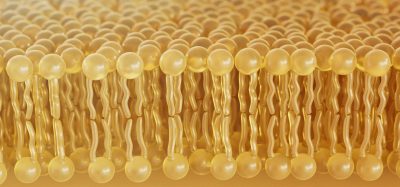Small molecule inducers of trained immunity found
Posted: 18 July 2024 | Drug Target Review | No comments yet
Researchers screened over 2,000 small molecules and have now more than doubled the known compounds reported to induce trained immunity.


Researchers at the University of Chicago Pritzker School of Molecular Engineering (PME) have discovered small molecule candidates that induce trained immunity, minus the side effects of alternative methods.
Compared to adaptive immune cells, innate immune cells have not got a specific long-term memory. However, scientists have been able to reprogramme these cells to enhance their ability to combat pathogens, such as the common cold or even new viral diseases for which vaccines have not yet been developed.
The team identified steroids as several of the top candidates which are drugs known to suppress the immune system. Dr Aaron Esser-Khan, who led the research with graduate student Riley Knight, stated: “This has opened up a whole new line of research in our lab…Many of the molecules we found are already approved by the FDA for other treatments, which makes this a promising therapeutic direction.”
Trained immunity, an epigenetic and metabolic rewiring of immune cells, offers non-specific protection against other infections and can prevent or treat cancers. However, if left unchecked, it can lead to autoinflammatory diseases. In the Esser-Kahn lab, Knight explored whether any small molecules could induce trained immunity. This approach would enable researchers to be more targeted and specific with training, avoiding the requirement for initial immune activation.
Collaborating with UChicago’s Cellular Screening Center, Knight screened 2,000 small molecules on live cells and tested the level of cytokines produced by the immune cells. Of the top 24 small molecule compounds, 13 that produced the most cytokines were glucocorticoids, a class of steroids. Yet these steroids are known to suppress certain parts of the immune system, like inflammation.
In a mouse model, when seven of the top candidates were tested, including two steroids, they found the same results. After receiving the small molecules, the mouse models were given an injection to induce inflammation. Four to six more cytokines than normal were induced by the small molecule steroids and no further inflammatory response was elicited. Furthermore, it was also discovered that immune training is dependent on glycolysis.
Moving forward, some of the team is studying how these compounds could improve responses to vaccines and prevent metastasis of cancer. Other team members are working to elucidate how these steroids work with the immune system, and how such steroids could be delivered to targeted areas of the body with nanoparticles. Dr Esser-Khan concluded: “We have now more than doubled the known compounds reported to induce trained immunity.”
This study was published in Proceedings of the National Academy of Sciences.
Related topics
Nanoparticles, Oncology, Small Molecules, Vaccine, Vaccine development
Related conditions
Cancer, viral infections







